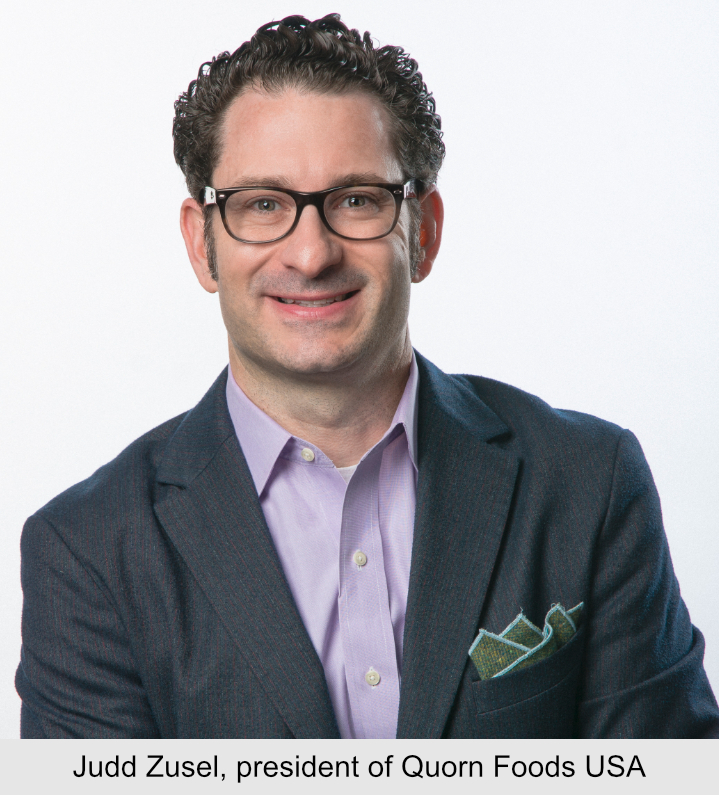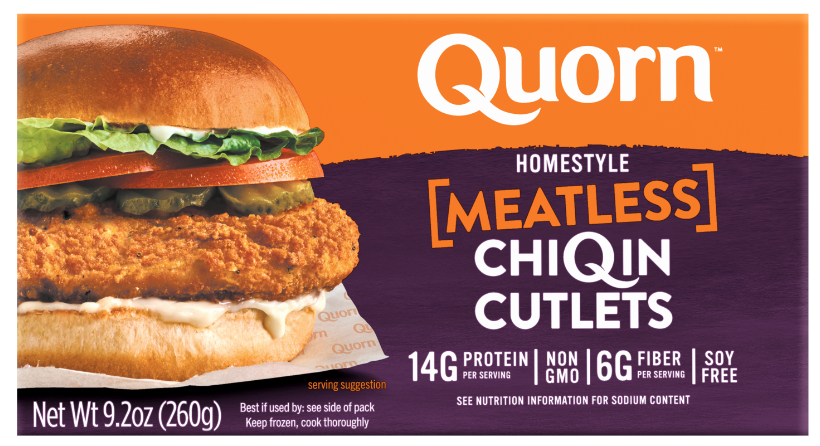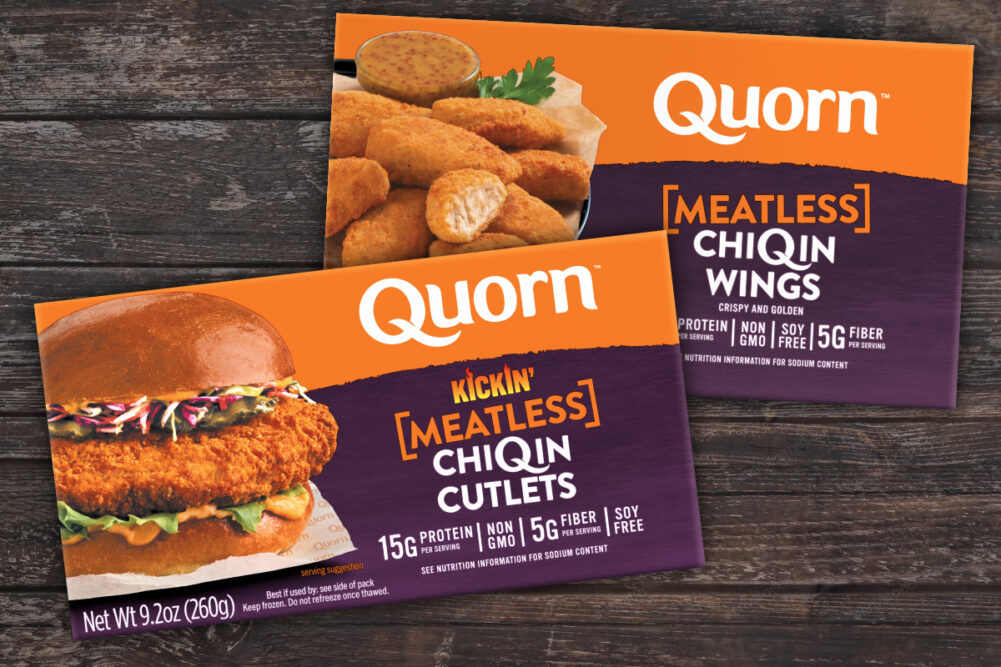CHICAGO – Judd Zusel, president of Quorn Foods USA, wants to make Quorn a household name in the United States. His parent company is giving him the resources he hopes will achieve that goal.
Quorn Foods USA is a business unit of Monde Nissin Corp., Makati City, Philippines. This past June, the company completed an initial public offering that raised approximately $1 billion in capital. In an interview with Food Business News, Mr. Zusel said building Quorn’s presence in the United States is a strategic priority for Monde Nissin.
“If you don’t know Quorn now, you will know it,” he said.
For the first half of 2021, Monde Nissin’s global Meat Alternative group had sales of $156 million. Quorn Foods USA sales were $14 million during the period.
Supporting the growth will be a much larger marketing budget, a rapidly filling new product pipeline and a new culinary center in Dallas that will continue producing both retail and foodservice concepts. Mr. Zusel said Quorn Foods USA will triple its marketing budget in 2022. Marketing programs will involve traditional initiatives as well as working with national influencers.
While Quorn may not be as well known in the United States as Mr. Zusel would like, the business has a track record of success in other markets, most notably the United Kingdom, where first-half sales totaled $122 million. Quorn was founded in 1985 in the United Kingdom. The brand’s key ingredient is mycoprotein, a complete protein high in fiber, low in saturated fat and has no cholesterol.
 The mycoprotein is based on the fungus Fusarium venenatum and grown using fermentation. The process has a sustainability benefit as it requires 90% less land and water than producing some animal sources of the protein, according to the company.
The mycoprotein is based on the fungus Fusarium venenatum and grown using fermentation. The process has a sustainability benefit as it requires 90% less land and water than producing some animal sources of the protein, according to the company.
The alternative chicken space is where Mr. Zusel sees the most opportunity.
“We do chicken the best because of the way we do it with mycoprotein, which mimics the texture and flavor of chicken like no other product,” he said.
While Quorn plans to focus on chicken, it does manufacture other applications like grounds and meatballs.
Innovation also will play a role in Mr. Zusel’s growth strategy. Quorn’s products are predominantly sold in the refrigerated cases and frozen food aisles of retailers, but he foresees a day when product will be sold in other parts of the store.
“What about the deli?” he said. “What about the meal solution section of stores? We see a lot of opportunity.”
In the immediate future, Quorn will be introducing six products before the end of the year. Three of the applications include an alternative chicken wing and two varieties of alternative chicken sandwiches.
A limitation for Quorn Foods USA is its manufacturing footprint in the United States. The majority of product currently sold is shipped to the United States from the United Kingdom.
“We do have some intermediate packing here through some third-party manufacturers,” Mr. Zusel said. “In the next three to five years we expect to build full production in the US and that will unlock a lot of growth for us.”
 Retail distribution makes up the majority of Quorn Foods USA’s business.
Retail distribution makes up the majority of Quorn Foods USA’s business.
“We do have some foodservice business and we plan on growing that side of the business as well,” Mr. Zusel said.
The new culinary center in Dallas is intended to speed the development of both retail and foodservice concepts. The company named Stephen A. Kalil as executive chef and he will lead new product development at the center.
“(Foodservice) is an area where we need to increase (our size) and become a bigger player,” Mr. Zusel said. “We are looking at QSR fast food, fast casual, and looking to develop healthy-for-you, better-for-you products. Another piece is we are looking at non-commercial venues like K-12. We feel like our nuggets are a fantastic product in that market.”
Mr. Zusel recognizes Quorn Foods USA is in a unique position. On one hand, the business unit is part of a global meat alternative business with a track record of success. On the other hand, other meat alternative brands in the United States have invested in marketing and innovation and developed strong positions in the category.
“We’ve proven we have a great product,” Mr. Zusel said. “Our No. 1 job is awareness. Not enough people (in the United States) know about Quorn right now. I want to turn it into a household name.”





